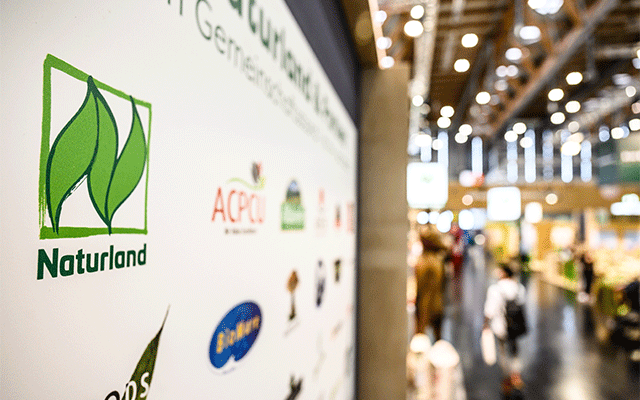Naturland at Biofach 2023
- Intro (Pagebuilder-Pages): Naturland at Biofach 2023 on 14th to 17th of february 2023 Meet us in Hall 7A!
Biofach 2023
Guest contribution
Naturland at Biofach 2023
Meet us in Hall 7A!
Biofach 2023 will take place in Nuremberg from 13 to 17 February. On this website, you will find all information about the Naturland stand at the fair. You can also learn more about presentations by Naturland colleagues in the Biofach program.
We look forward to seeing you at the Naturland stand. No matter if you make an appointment with our Naturland staff or just drop by for an exchange.
What to expect at our Naturland-Stand?
Come by the Naturland stand, we are looking forward to an exciting exchange. What can you expect in Hall 7A?
With around 1,900 square metres, the joint stand "Naturland & Partner" is once again one of the largest joint stands at BIOFACH. Naturland presents itself there with a total of 44 partner companies. More than 170 other Naturland partners can be found in the other exhibition halls.
Theme islands guide visitors through the world of Naturland
At the Naturland stand, various theme islands will guide visitors through the world of Naturland. Right at the entrance, the theme island "Product diversity" offers an overview of the origin of Naturland's organic, social and fair trade products from about 60 countries around the world. In the Naturland Gastro Lounge, experts will provide information on how organic can be successfully implemented in out-of-home catering.
The new "Naturland Highlights" theme island brings together central areas of sustainability: from the unique combination of organic agriculture and fair trade through Naturland Fair, to the safeguarding of animal welfare at Naturland, to the diverse commitment of Naturland farmers in Germany and worldwide to biodiversity. One focus is the topic of agroforestry in various facets.
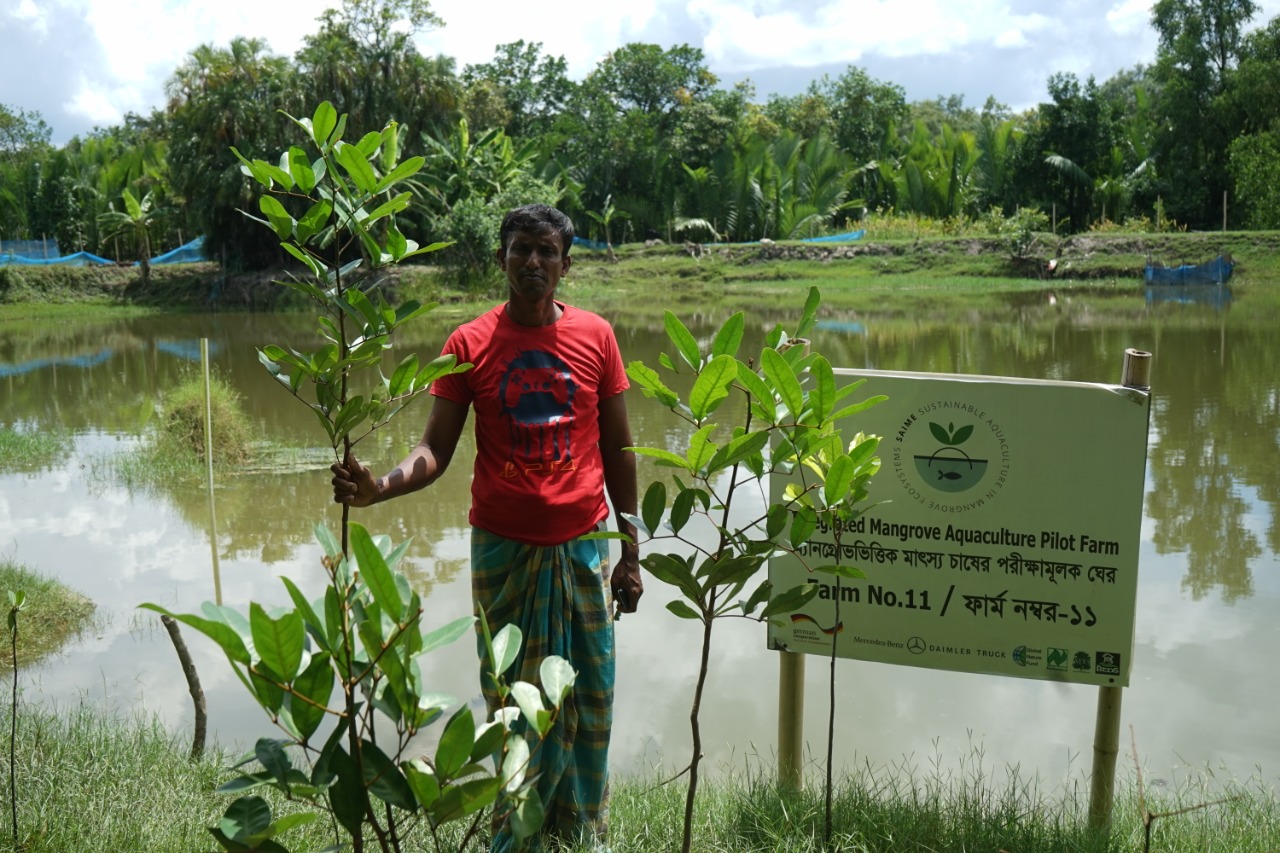
SAIME mangrove project
The "Sustainable aquaculture in mangrove ecosystems" project aims to promote the sustainable design of aquaculture systems by focusing on protecting mangroves and improving local living conditions. A large proportion of the project measures is implemented in the Sundarbans, where the world’s largest mangrove forest stretches over an area of 10,000 km² in the federal state of West Bengal in India and the Khulna Division in Bangladesh.
At Biofach we will not only show a mangrove aquarium, but also some products from mangrove forests.

Being organic in EU
More awareness of the advantages of organic farming, more trust in organic food: Within the framework of the EU project "BEING ORGANIC in EU", Naturland is committed to these goals together with FederBio, the organic umbrella organization in Italy.
For this purpose, various on- and offline measures will be designed and implemented for three years. These include trade fair appearances at Biofach in Nuremberg or SANA in Bologna, social media and press activities as well as food trucks, gastro events, and workshops.
The Naturland seal is indeed awarded according to much stricter standards than the EU organic seal! But it is also a fact that the organic label and its criteria are the basis of all organic management in the EU food sector. Naturland-certified products must always bear the EU organic logo.
Biofach Nuremberg, Beeing Organic / Hall 7A-171

Let’s get wild! Social Media goes Biodiversity
At Biofach, our Naturland social media team is shooting a video on the topic of biodiversity. As many visitors as possible should hold a photo of an endangered animal or plant in the camera. We will post the video on our Insta channel in the course of the year. You are invited to stopp over at the Social Media Room (Hall 7A/367 Highlight Area). We will be on site from monday (13th of february) until thursday (16th of february) between 9:00-10:00 a.m. or inbetween to try our luck. We are looking forward to see you!
FAQ: Naturland at Biofach
Here you will find answers to various questions about Naturland and the Naturland stand at Biofach.
-
How can I make an appointment with someone from Naturland?
To make an appointment, please contact your contact person directly or ask our colleagues at the Informations stand in hal 7A-344
-
I am at the Biofach but cannot find the Naturland-Stand or would like to make a last-minute appointment, what can I do?
In Hall 7A-344 you can find our information stand where Naturland colleagues will help you.
-
How do I find the right contact person for my concern at the Naturland stand?
In hall 7A-344 you will find our information booth. There, Naturland employees will help you with various questions.
-
Will there be any public events at the Naturland stand?
On Wednesday, 15th of Feruary there will be a party at the Naturland stand, open for everyone. You are very welcome to join and you don´t need a ticket. The party starts at 18.00
Naturland lectures/panel discussions at Biofach
The following dates and events organised by Naturland or with Naturland participation will take place during the fair (rotate cell phone view to see the entire overview):
| Where & When | About |
|---|---|
| 14.02.2023 11:00 - 12:00 Saal Brüssel (NCC Mitte) |
Press conference on the state of the industry with IFOAM and BÖLW on BIOFACH |
| 14.02.2023 12:15 - 13:00 Raum Istanbul (NCC Ost) |
Steffen Reese: Part 2: European organic market developments (analyses) |
| 14.02.2023 17:00 - 18:00 Saal Seoul (NCC Ost) |
Marco Schlüter (Moderator): The World of Organic Agriculture - Latest Statistics and Trends Forum BIOFACH |
| 15.02.2023 14:30 - 16:00 Saal St. Petersburg (NCC Ost) |
Marco Schlüter: Global Organic Market Overview |
| 15.02.2023 15:00 - 16:30 Raum Neu-Delhi (NCC OST) |
Daniela Schröder: Social responsibility in organic farming between the evolution of european legislation and the esg approach |
| 15.02.2023 15:30 - 16:15 Raum Oslo |
Werner Vogt-Kaute: New EU Seed Marketing Rules - What's at stake for organic? |
| 16.02.2023 13:30 - 14:15 Saal St. Petersburg (NCC Ost) |
Dr. Christina Weber:From Fair Price and Premium to Living Income – New strategies in organic Fair Trade |
| 16.02.2023 16:30 - 18:00 Saal Seoul (NCC Ost) |
Annabel Schuhn: Organic aquaculture- the European market perspective! |
| 17.02.2023 10:00 - 11:00 Raum Shanghai (NCC Ost) |
Marlene Rudolph:Export crops for local livelihoods: Local diversification and value addition in organic smallholder farmer groups |
Naturland at Biofach 2024
- Intro (Pagebuilder-Pages): Naturland at Biofach 2024 on February 13th - 16th 2024 Meet us in Hall 7A!
Biofach 2024
Guest contribution
Naturland at Biofach 2024
Meet us in Hall 7A!
Biofach, the world’s leading trade fair for organic food, will take place in Nuremberg on February 13th - 16th 2024. Find out all there is to know about Naturland’s program at Biofach 2024.
We look forward to seeing you at the Naturland stand. No matter if you make an appointment with our Naturland staff or just drop by for a chat.
What to expect at our Naturland stand?
From February 13th to 16th, Naturland will once again be exhibiting at Biofach in Nuremberg. Together with 55 of its partners from the processing and trade sectors, Naturland will host a 1.900 m² joint stand in hall 7A. More than 200 other Naturland partners can be found in the other exhibition halls.
At the Naturland stand, various theme islands will guide visitors through the world of Naturland:
-
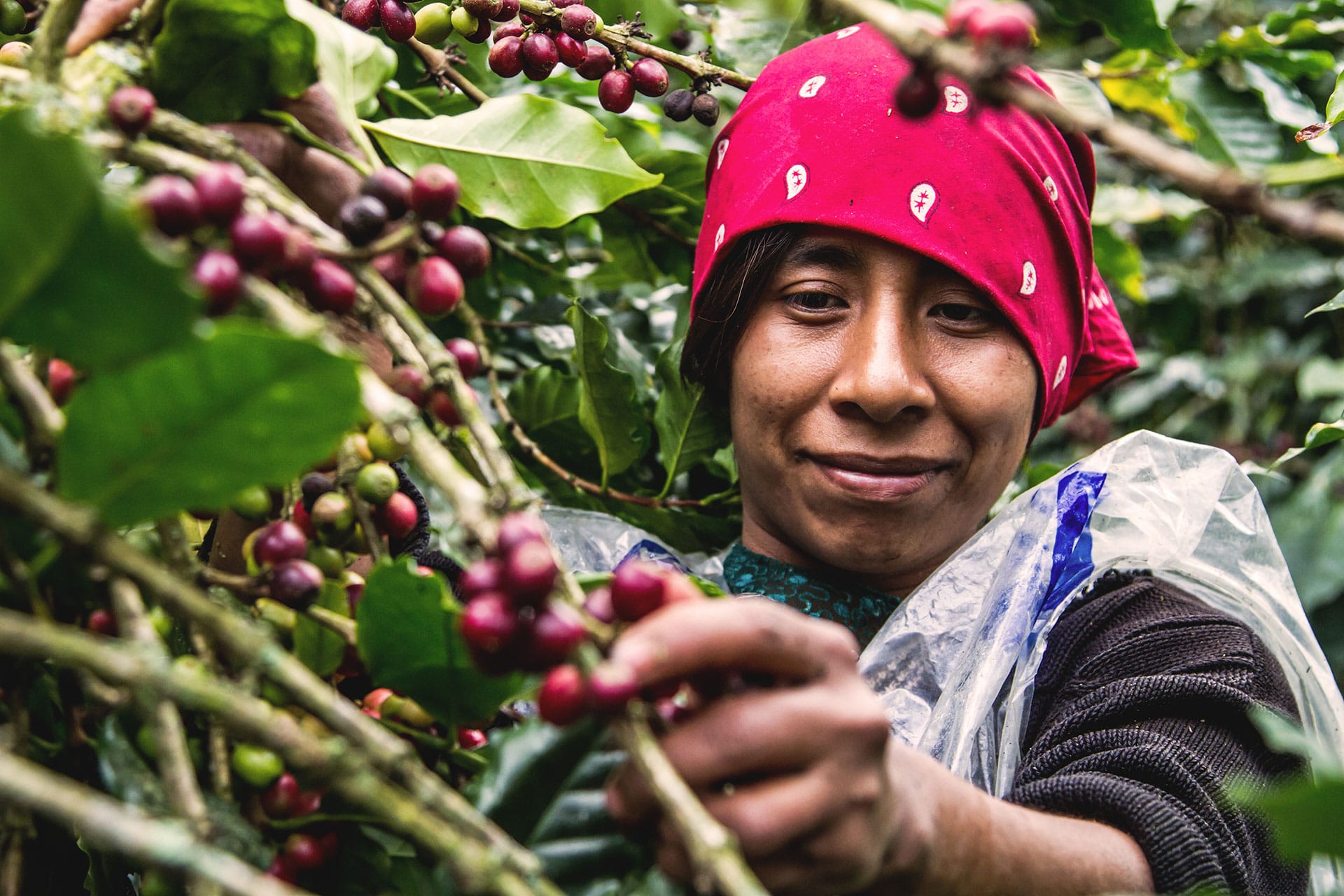
Product diversity
Right at the entrance, this theme island offers an overview of the origin of Naturland's organic, social and fair trade products from various countries around the world.
-
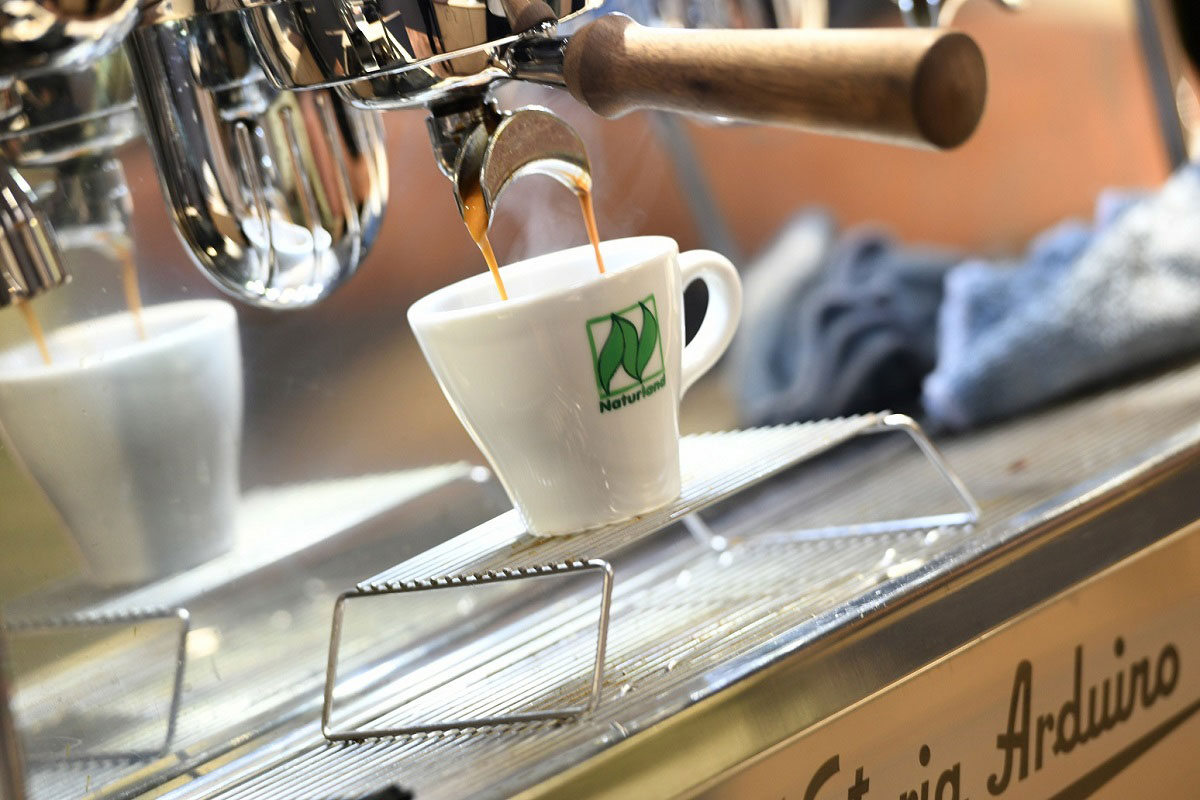
Naturland Gastro Lounge
Here, experts will provide information on how organic can be successfully implemented in out-of-home catering.
-
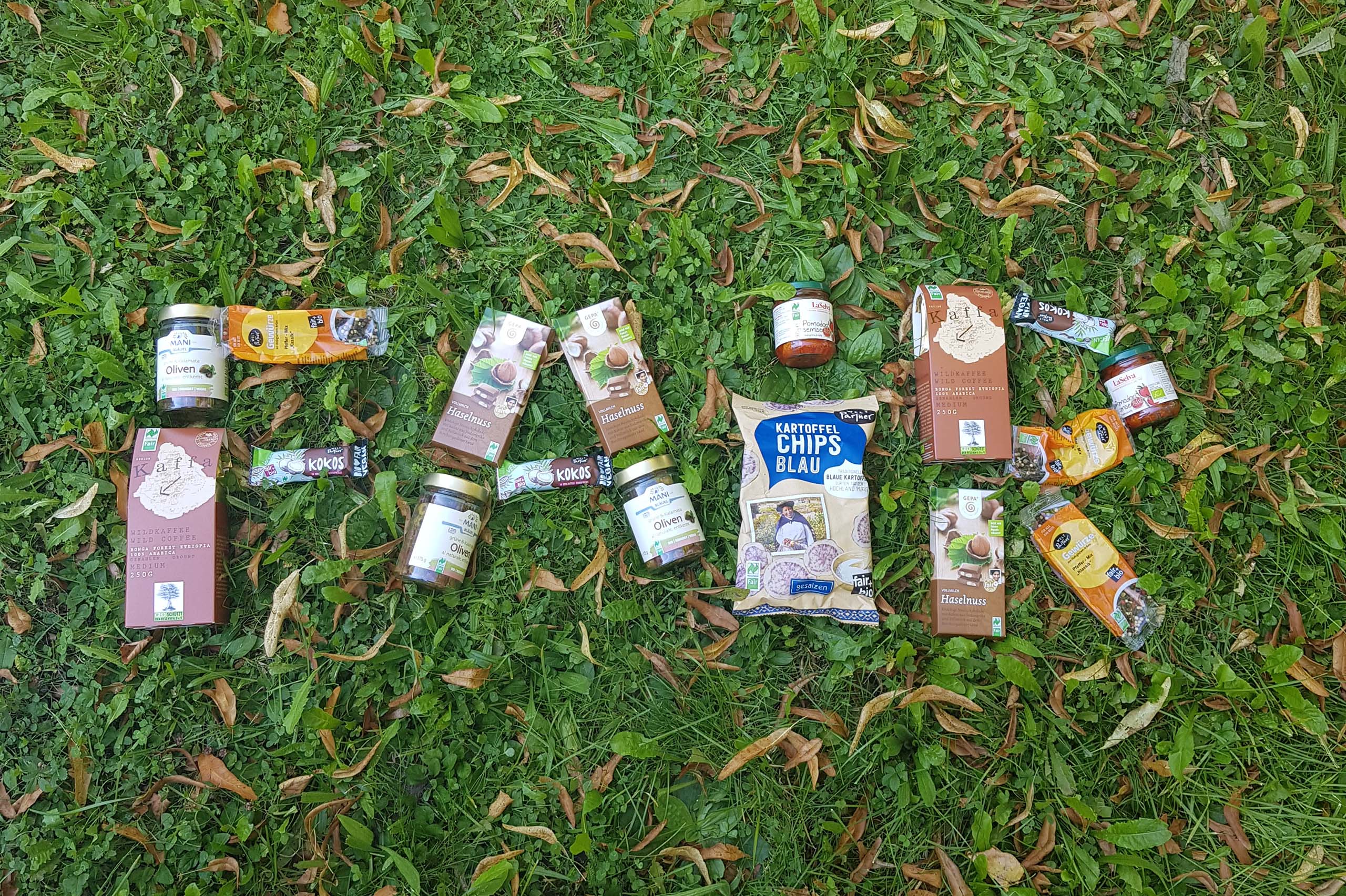
Naturland Highlights
This theme island presents a range of topics closely connected to the topic of sustainability.
Topics at the theme island "Naturland Highlights" include:
- Naturland Fair: Organic agriculture and fair trade
- Safeguarding of animal welfare at Naturland
- Commitment of Naturland farmers in Germany and worldwide to biodiversity: Our central theme for communication in 2024, biodiversity, will be present in various parts of the program
- Agroforestry: A focus will be on coffee production in East Africa
A new element of the program this year is the “HR area” at the Naturland stand, where Naturland will present itself as employer.
And the project „Being Organic in EU“ will be present with new attractions: A foodtruck, a photobox and a lounge with VR-videos for an immersive view into organic farming.
FAQ: Naturland at Biofach
Here you will find answers to various questions about Naturland and the Naturland stand at Biofach.
-
How can I make an appointment with someone from Naturland?
To make an appointment, please contact your contact person directly or ask our colleagues at the Informations stand in hall 7A-344
-
I am at the Biofach but cannot find the Naturland-Stand or would like to make a last-minute appointment, what can I do?
In hall 7A-344 you can find our information booth where Naturland colleagues will help you.
-
How do I find the right contact person for my concern at the Naturland stand?
In hall 7A-344 you will find our information booth. There, Naturland employees will help you with various questions.
-
Will there be any public events at the Naturland stand?
On Thursday, February 15th, there will be a party at the Naturland stand, open to everyone. You are very welcome to join and you don´t need a ticket. The party starts at 18.00.
For further events, scroll down to the program overview on this webpage.
Naturland at Biofach 2024
The following events organised by Naturland or with Naturland participation will take place during the fair (rotate mobile phone view to see the entire overview).
Unless stated otherwise, the events are in English.
| Where & When | About |
|---|---|
| 13.02.2024 11:00 - 11:45 Room Shanghai (NCC East) |
BÖLW and IFOAM: Press conference on the occasion of Biofach 2024 in German » Public event. More information in the Biofach congress schedule. |
| 13.02.2024 15:00 - 16:00 Room Kiew (NCC East) |
How can the organic sector become 1.5°C compatible? in German » Public event. More information in the Biofach congress schedule. |
| 14.02.2024 10:00 - 10:45 Room Seoul (NCC East) |
EU budget for organic: How and when to apply for the promotion policy co-funding? » Public event. More information in the Biofach congress schedule. |
| 14.02.2024 11:15 - 12:00 Room Seoul (NCC East) |
Real Organic Project: Safeguarding organic integrity in the United States » Public event. More information in the Biofach congress schedule. |
| 14.02.2024 13:30 - 15:00 Room St. Petersburg (NCC East) |
Global organic market overview » Public event. More information in the Biofach congress schedule. |
| 14.02.2024 14:30 - 15:30 Hall 3A, Horeca Communication Area |
Bronze, silver and gold: For more organic food in out-of-home catering with an organic association as support in German » Public event. More information in the Biofach congress schedule. |
| 14.02.2024 15:30 - 16:30 Hall 3A, Horeca Communication Area |
Added value for the host: Naturland gastronomy certification in German » Public event. More information in the Biofach congress schedule. |
| 14.02.2024 16:30 - 17:30 Room Shanghai (NCC East) |
Concepts for the CAP 2027: How can the organic system approach benefit the agricultural financing system in the EU? in German with translation » Public event. More information in the Biofach congress schedule. |
| 15.02.2024 11:30 - 12:00 Naturland Lounge (hall 7A-355) |
Award ceremony: The best events of the Organic Experience Days ("Bio-Erlebnistage") 2023 in German |
| 15.02.2024 14:00 - 15:00 Naturland Lounge (hall 7A-355) |
Organic Coffee Workshop » By invitation. To participate, please register here. |
| 15.02.2024 15:00 - 16:00 Room Shanghai (NCC East) |
Organic farming: With or without animals in German with translation » Public event. More information in the Biofach congress schedule |
| 15.02.2024 16:30 - 17:30 Naturland Lounge (hall 7A-355) |
Tea from Georgia: Tea tasting » Public event, no registration needed |
| 15.02.2024 16:45 - 17:30 Room Shanghai (NCC East) |
Training in the organic sector: Strong skills for a strong future » Public event. More information in the Biofach congress schedule. |
| 15.02.2024 17:15 - 18:00 Room Oslo (NCC East) |
Pricing in the organic milk market: Can the orientation price contribute to fairness? in German » Public event. More information in the Biofach congress schedule. |
| 15.02.2024 From 18:00 Naturland stand |
Naturland Blue Night » Public event, join the party at our booth! |
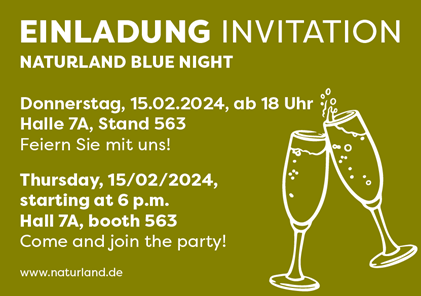
Perspectives by Zeichen GmbH
Organic News
Perspectives
Guest contribution by Zeichen GmbH
Organic food: Anything but in crisis?
What is the current mood in the organic sector? Are there new partnerships and changes on the market? This is how managing directors of Naturland Zeichen GmbH assess the situation on the organic market:
Dear Naturland farmers,
We are all going through turbulent times together at the moment. First Corona and now the terrible war in Ukraine, which not only concerns us all, but also increasingly affects us in a very concrete way: disrupted supply chains, exploding energy prices, galloping inflation, partly fuelled by speculation. All of this is causing uncertainty among businesses and consumers.
All in all, many good reasons to become pessimistic. And many do so. Last but not least some voices in the German media are already starting to conjure up the next organic crisis. It is even more important to take a closer look and not to be alarmed. What seems clear: organic is not in crisis! We are experiencing a general economic crisis, which is also affecting the organic sector to varying degrees.
At the same time, however, the unique strengths of organic are proving their worth right now: we are not dependent on energy-intensive fertilisers and pesticides and have many functioning, regional supply chains. Organic prices are rising more moderately than those for conventional food. Simultaneously, sales declines in the organic sector are smaller overall; essentially they are going back to the level before the Corona boom. However, purchases are shifting: people continue to buy organic, but they currently prefer to do so at discounters or reach for cheaper private labels.
Of course, it will be of little consolation to the organic grocer, who has to struggle with considerable losses in sales, when the discounter on the outskirts of the city even records increases in organic sales. All in all, however, the figures show that consumers continue to trust in organic food. And that should give us cause for confidence - despite all the current difficulties.
We are also confident because trade continues to place undiminished emphasis on organic products in Naturland quality. This can be clearly seen in the number of Naturland certified products, which has increased by more than 40 percent in the past two years! Mind you, we are not talking about sales, where organic products experienced a boom during the two pandemic years, which is now over. We are talking about products that have been newly introduced to the market, i.e. that indicate a longer-term trend.
At the same time, we are continuously expanding Naturland's trade partnerships and thus opening up new sales channels for your products. Just a few key words: The German retailer EDEKA will in future also use Naturland for its own brand "Naturkind", which is also on the shelves at Edeka- subsidiary Netto. The REWE group of companies will extend its partnership with Naturland to its discounter Penny. The "Bio-Zentrale", a brand for food retailers, will increasingly include products certified by Naturland. And last but not least, the discounter Aldi will launch a new organic brand with Naturland's logo in the course of the coming year.
In addition, talks with several prospective partners in retail are in some cases close to being concluded. And progress is also being made in the catering sector. For example, the gastronomy at the legendary Nockherberg in Munich is now Naturland certified.
So you see: as painful as the current crisis may be, there are good reasons to look forward with confidence. Together we are now laying the foundation for a strong future development of Naturland.
Yours sincerely
Martina Romanski and Michael Stienen, Management Naturland Zeichen GmbH
This text is a translation. No guarantee can be given for the correctness.
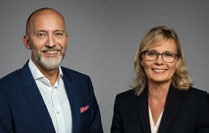
Zeichen GmbH
Martina Romanski and Michael Stienen, managing directors of Naturland Zeichen GmbH
"Consumers are aware of the benefits of organic food"
Organic News
Perspectives
Guest contribution
"Consumers are aware of the benefits of organic food".
Marcus Wewer is successfully committed to more and more Naturland and organic food on the shelves of Rewe (a large German supermarket chain). Consumer advocate Armin Valet critically observes the range of goods in the food retail trade. Naturland interviewed both of them about how they and their clientele feel about organic food in the light of current developments.
Naturland: What role does organic food play today in your advisory services or on your supermarket shelves? And to what extent has consumer behaviour changed with regard to organic food due to the current crises?
Armin Valet: Organic food is part of our advisory services. Consumers always have questions about it, often critical ones. Organic food has a good image with many consumers, but in the crisis, these foods are also under close examination. What we hear is that many people don't want to go without organic food, but are already looking where they can get it as cheap as possible.
Marcus Wewer: Organic products are still a growing market. The issues of climate, soil and water conservation, biodiversity, pesticide residues and animal welfare continue to be high on society's agenda.New additions are questions of food sovereignty, dependence on imports, world nutrition and, of course, the immense energy demand for synthetic nitrogen fertiliser. These are all issues to which organic has the better answers. After the uncertainty caused by war and inflation in spring, conscious organic shopping has again established itself after the summer holidays.
Nevertheless, it is also noticeable that consumers are looking for cheaper organic alternatives. Within the organic segment, our private label REWE Bio is growing particularly well. Of course, we are pleased about this and it strengthens our commitment to further develop this brand.
Naturland: And what are the most frequent questions that consumers or your customers ask you about organic food?
Marcus Wewer: Questions about organic quality, origin, packaging and the separation of organic and non-organic products are the main focus of enquiries. In addition, there are sometimes very specific questions on topics that are currently circulating in the media. In the case of questions about organic quality, we notice an increased attention to products from the organic farmer´s associations. Possibly these are new REWE customers who were already organic buyers. They question the organic standard and also why certain REWE organic products have the Naturland label on them and some do not. This is often accompanied by the question of origin and regionality. Why, for example, is an organic pineapple organic when it comes from Ecuador?
When it comes to packaging, the classic question is whether it makes sense to have two organic schnitzels in self-service packaging and why we don't stock organic meat in the service counter. Then it is interesting to see how we, as a full-range retailer with organic and non-organic food, manage the separation of goods in purchasing, in disposition and in the market display. The more specific questions are, for example, about calf rearing in dairy cows - the keyword being mother-bound calf rearing - or ethylene in organic carob flour.
Armin Valet: Many consumers know about the advantages of organic food. As a rule, these customers do not ask us about them. Logically, we are more likely to receive critical questions: Why is the organic product packaged in so much plastic? How can frozen broccoli from Ecuador be organic?
Naturland: Organic farming has stepped up for a more sustainable and honest form of food production and processing. How do you and your clientele perceive the role of organic farmers and their organic associations?
Armin Valet: Many consumers perceive this to be the case. However, this also increases the demands on food and communication. Consumers have very high expectations and are sometimes disappointed when these expectations are not met. That is why we believe that it is mainly the farmers' associations that have the responsibility to clearly and pro-actively name and explain the interrelationships on this issue.
Marcus Wewer: Our customers expect organic quality that is of a consistently high standard. This starts in agriculture. Naturland farms are 100% converted to organic farming, not only in Germany. This is a very important factor in customer communication. We are very pleased that classic producers from the organic sector produce our REWE Bio private label. We are even more pleased when they also proudly state their company name and do not set up a sales company for it.
Naturland: Does your clientele distinguish between EU-organic and farmers association organic? And what role do the organic farmers associations play for you?
Marcus Wewer: REWE Bio with Naturland is an important co-branding. Our customers pay attention to this, as already shown in the answer to the consumers' questions. Naturland ensures a high level of quality, our customers have learned that. Especially for organic animal products, where the origin is particularly important, we score points with Naturland. The organic farmers associations are essential for the further development of organic agriculture in Germany!
Armin Valet: Yes, we inform consumers over and over again about the differences between the requirements of EU organic and organic from farmers associations. This varies. There are many consumers who are very well informed, who know the details and even know the differences between EU organic and organic from farmers associations. Many others, however, do not, because for them, organic is organic.
Naturland: Energy crisis, delivery shortages and rising prices everywhere. What development do you see for organic? Will organic play a bigger role in discounters in the future?
Armin Valet: Organic was already very important for discounters before the crisis, and we assume that their share of organic trade will increase even more during the crisis. But it is also important that organic specialist shops continue to exist and that there is a balance. Unfortunately, we see a negative trend here during the crisis, organic shops are obviously losing customers. But the organic shops around the corner are important: they contribute to diversity and have important aspects in favour of organic more clearly in focus, e.g. supporting small regional suppliers. So they really do offer advantages over organic products from discounters. But these also have their price.
Marcus Wewer: For the future of the organic market, it will be crucial that it clearly demonstrates its benefits in terms of climate, energy efficiency, regionality, biodiversity, animal welfare and many other arguments. It is the task of the German government to promote the goal of 30 percent organic farming broadly and intensively. But the organic farming associations must not neglect public relations activities and consumer education. All forms of marketing will grow: specialised trade, farm-gate sales, food retailing, drugstores and discount stores. Each trade format must know its strengths, use them and win customers for itself.
Naturland: Are there any goals that you want to achieve with regard to organic food in the next few years?
Armin Valet: More like topics that are indirectly related to organic: Sustainability, but also the new genetic engineering, where we see a great need for information. Genetic engineering must not be allowed to end up in the supermarket through the back door by suddenly softening the labelling requirements.
Marcus Wewer: REWE wants to take a leading role in the sale of organic products in Germany and thus also take responsibility for the development of organic agriculture.
Naturland: What do you think the organic sector should or could do better in the future?
Marcus Wewer: Lead the public debate. Address the issues of climate, biodiversity and animal welfare in such a way that organic farming is the answer and the solution.
Armin Valet: Strengthening their core competences: regionality, transparency and honest communication and taking consumers and their questions seriously. That should be the focus - and not growth at all costs.
This text is a translation. No guarantee can be given for the correctness.
The interviews were conducted by Markus Pfeuffer and Ralf Alsfeld, both Naturland e.V.
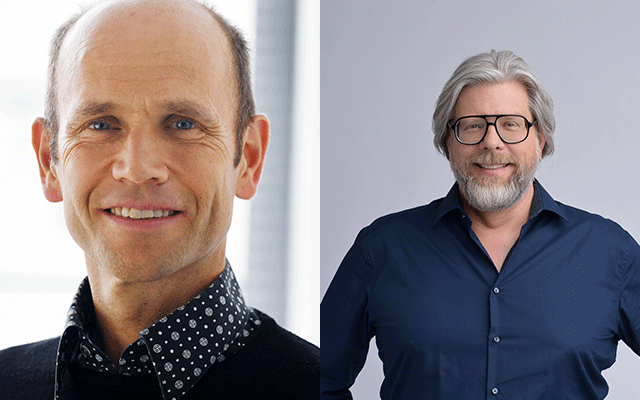
The interview partners
Consumer advocate Armin Valet (left, source: Karin_Gerdes) and Marcus Wewer (right, source: BÖLW) from Rewe, a large German supermarket chain.
Statistics of the global organic market in 2021
Organic News
Perspectives
Guest contribution
Statistics of the global organic market in 2021
The global organic market and farmland continued to grow in 2021
Each year, the Research Institute of Organic Agriculture (FiBL) and IFOAM - Organics International present the latest data on organic statistics worldwide at BIOFACH in February. The yearbook "The World of Organic Agriculture" is available for download on the FiBL website and provides an overview of the development of organic agriculture and markets worldwide. These are the latest figures and trends FiBL and IFOAM presented in 2023:
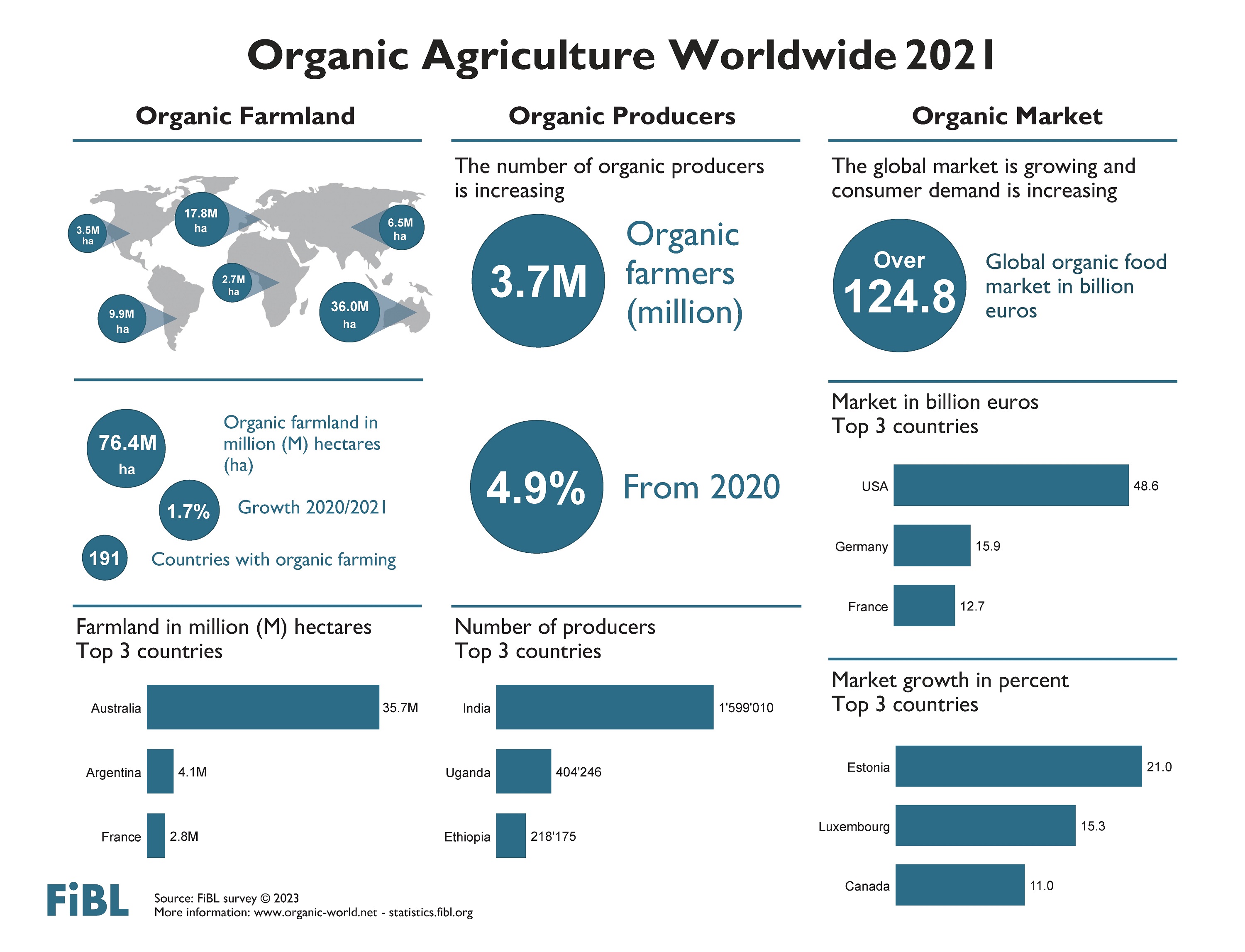
The development in 2021 shows that organic retail sales increased by four billion Euro and reach almost 125 billion Euro in 2021; organic cultivation area grew to 76.4 million hectares. Globally, the organic farmland increased by 1.3 million hectares in 2021, with the biggest increase in China, France and Spain. In 2021, 1.6 percent of the world’s agricultural land was organic. The highest organic shares of the total agricultural land were in Oceania (9.7 percent) and in Europe (3.6 percent; EU: 9.6 percent).
Nearly two-thirds of the organic agricultural land was grassland/grazing areas. Arable land accounted for 19 percent of the organic land, mostly used for cereals, followed by green fodder, oilseeds, textile crops and dry pulses. Permanent crops accounted for 8.1 percent of the organic land, with the key crops being coffee, olives, nuts, grapes and cocoa. There were at least 3.7 million organic producers in 2021, 49 percent located in Asia, followed by Africa (31 percent), Europe (12 percent) and Latin America (8 percent). The global market of organic food and drink sales reached nearly 125 billion Euro in 2021. The main importer of organic products are the US and EU where imports amounted to 4.7 million metric tons (MT) in 2021. The graph below shows the key facts of the organic retail sales in 2021.
Europe
In 2021 in Europe the organic farmland and market continued to grow, although slower than in previous years. The total organic farmland in Europe was 17.8 Mio hectares, a share of 3.6 percent of total farmland in 2021. France had the largest organic farmland area, followed by Spain and Italy. 8.4 million hectares were used for the production of arable crops, with the main crops cereals, green fodder and oil seeds, while 6.9 million hectares were permanent grassland. Another 2.0 million hectares were used for permanent crops, mainly olives, grapes and nuts. In 2021 there were 442,274 organic producers, 87,676 organic processors and 7,590 organic importers. The organic retail sale measures in total 54.5 billion Euro. The European Union imported a total of 2.87 million MT of organic products, the top importers were the Netherlands (0.95 million MT), Germany (0.52 million MT) and Belgium (0.28 million MT). The main export products to the EU were bananas (0.72 million MT), oilcakes and sugar (0.21 million MT each). The countries with the most exports to the EU were Ecuador (0.35 million MT), the Dominican Republic (0.27 million MT) and India (0.21 million MT).
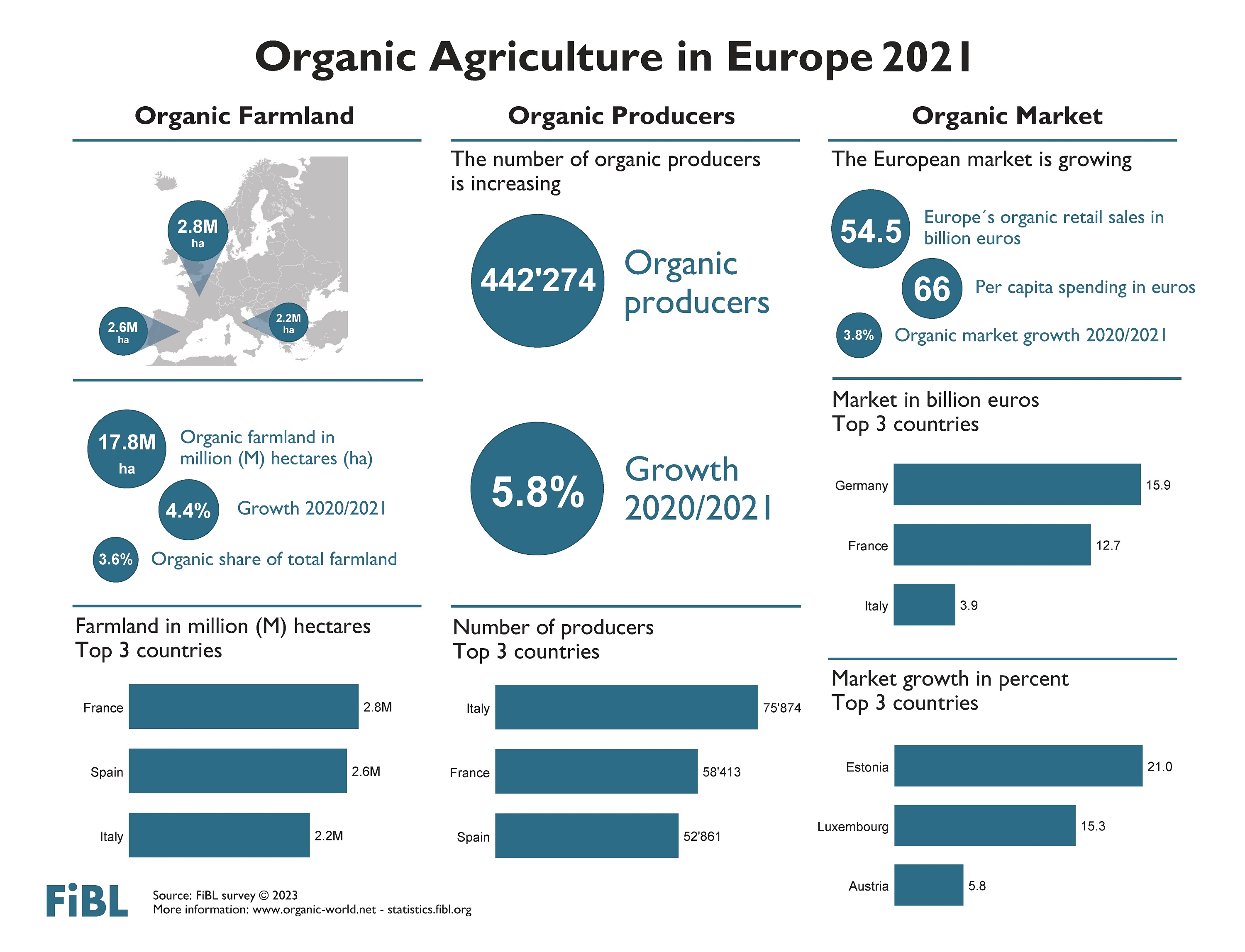
Asia
In 2021, more than 6.5 million hectares were managed organically, this equals nine percent of the world's organic farmland. In total, there were more than 1.78 million organic producers in Asia (almost half of the world’s organic producers), of which almost 1.6 million operated in India.
North America
Nearly 3.5 million hectares were under organic management in 2021 in North America (-200,000 ha since 2020). This area was cultivated by more than 23,000 farmers, over 70 percent of them in the US. In the total of 53.9 billion Euro in retail sales, the US had the biggest share with 48.6 billion Euro.
Latin America and the Caribbean
In 2021, nearly 9.9 million hectares were managed organically, but with a small decrease of -0.7 percent. Almost 70 percent were permanent grassland, located mainly in Argentina, Uruguay and Brazil. Over 2.7 million MT were exported to the EU and US, constituting 56.8 percent of all organic exports to these trade blocks.
Africa
The area under organic cultivation grew by 17.3 percent, thus resulting in a total of nearly 2.7 million hectares of organic land in Africa. In 2021 almost 460,000 MT of organic products were exported to the EU and US. Over 20 percent of organic exports consisted of soybeans/soybean products, oils or bananas.
Oceania
In 2021, nearly 36 million hectares were organically managed in Oceania. More than 99 percent of Oceania’s farmland was in Australia, making it the country with the largest organic area worldwide. Nevertheless, around 96 percent of Oceania’s organic farmland is permanent grassland or grazing land.
This text is a translation. No guarantee can be given for the correctness.
Source: Willer, Helga, Bernhard Schlatter and Jan Trávníček (Eds.) (2023): The World of Organic Agriculture. Statistics and
Emerging Trends 2023. Research Institute of Organic Agriculture FiBL, Frick, and IFOAM – Organics International, Bonn. Online Version 2 of February 23, 2023
Detailed information (free PDF download):
Research Institute of Organic Agriculture FiBL & IFOAM – Organics International: The World of Organic Agriculture Statistics and Emerging Trends 2023
https://www.fibl.org/fileadmin/documents/shop/1254-organic-world-2023.pdf




